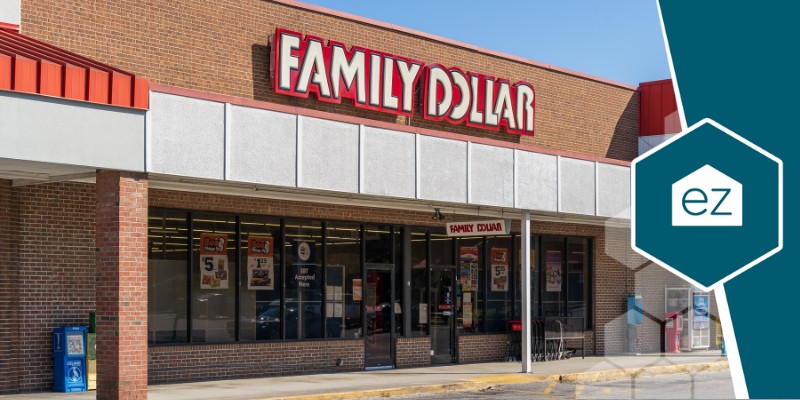Is North Carolina A Good State To Buy A Home?

Is North Carolina A Good State To Buy A Home?
From the shifting sands of the Outer Banks to the stony peak of Grandfather Mountain, North Carolina’s majestic landscape has drawn people to live there for centuries. But the rich amenities have kept them there–the outdoor recreation choices, great schools, and thriving job markets.
For those looking to buy a home, it’s important to consider many factors before deciding–not just the housing market. The job market matters as a thriving economy means you can find gainful employment or tenants with a steady income stream. Education and healthcare access should also be evaluated, as these indicate a high quality of life for residents.
So if you’re wondering if you should buy a home in North Carolina, use the following factors to determine if it makes sense for you.
North Carolina is affordable

Want to stretch your budget further? North Carolina may help you save money, depending on where you’re coming from. Or not. MERIC data placed North Carolina in the middle for its overall cost of living in 2022, right at no. 24.
The good news is the state is generally 5% cheaper than the national average. Healthcare expenses were the only category that ran above average, while housing was actually 10% below the national average. That’s good to know since housing costs are usually the largest line item in personal budgets.
But, like all states, living costs vary widely across North Carolina. Chapel Hill residents paid 16% more and Asheville residents 5% more than national averages to live there.
According to the council’s most recent data, the towns of Thomasville–Lexington had a cost-of-living index score of 84.1, making it the most affordable area in the state. Combined, these two towns had about 46,000 residents.
Still, big cities like Raleigh, Durham, and Charlotte posted an overall cost of living under national averages. That means North Carolina can be great for those on a tight budget to find an affordable place to live.
North Carolina’s prices are okay
Looking at averages, the yearly cost of personal consumption in North Carolina was $43,959 in 2022. So if all your expenditures matched the average, and you’re single, that would be what you need to live in North Carolina.
So what are “average” expenditures in the data? For 2022, SoFi said it was:
- $7,350 for housing and utilities
- $3,630 for food and beverage, not including eating out
- $7,179 for healthcare
MIT’s Living Wage Calculator estimated that a family of four with one adult working and two children would need $67,766 after taxes in 2022 to cover the essentials. A single adult would need $29,907.
Seeing how housing is usually the biggest expenditure for personal budgets, savings here can add up. The 2022 median monthly mortgage cost was $1,397. Average housing costs ran from $892 to rent a studio up to $1,844 per month for renting a 5+-bedroom single-family.
North Carolina’s got some top job markets

The North Carolina Department of Commerce produces employment projections for the state with current statewide predictions for 2021-2030.
Between 2018 and 2028, the DOC predicted the state would gain over 302,000 new jobs at an annual growth rate of 0.6%. The majority, approximately 89%, of these new jobs will be in service-providing sectors like hospitality, business services, healthcare, and education.
The top growing employment sector by 2030 is expected to be health care and social assistance, with the state calling for 76,000 new jobs. It’s growing at an estimated year-over-year 1.33%.
However, while health care will add the most jobs, computer and mathematical work is actually growing the fastest at a rate of 2.1% YOY. It’s related to the professional, science, and technical sector, growing by 1.9% YOY.
The retail trade is the second-largest employment industry based on the number of jobs, but this field is projected to have meager growth up through 2030.
According to a recent national study, North Carolina’s capital city ranks as the fifth-best job market in the United States. Raleigh’s workforce will grow 4% over 2022, with technology and hospitality leading the way. Raleigh also ranked in third in the nation for economic development, with Wilmington no. 7.
North Carolina’s real estate market is booming
You’ll surely find somewhere to live, with approximately 4.8 million housing units as per the 2021 census data. The abundance of housing may be helping costs stay relatively affordable.
As of April 2023, North Carolina’s median sale price was $302,549, a hefty discount from the national median of $402,500. Listings stood at 43,838, which was down 4.4% YOY. It was a seller’s market with a 3.17 months supply, up 16% YOY.
Another analysis by WalletHub for 2023 ranked some of North Carolina’s cities as the best real estate markets in the country. The study used a methodology that considered city size and another 17 metrics to assign up to 100 points. The four cities that appeared in the top 30 were Cary, Durham, Raleigh, and Charlotte. Cary ranked no. 6 in the nation.
In terms of sales activity, Raleigh is the nation’s hot market. US News and World Today looked at data on the percentage of asking price received, inventory, waiving inspections, and additional housing market metrics. Raleigh ranked first in the nation, while its sister city Durham was no. 3.
But while it may be “hot” by one measure, another evaluator found home values were growing the most in Pinehurst–Southern Pines, Brevard, and Jacksonville.
North Carolina is middle of the road for taxes
Unfortunately, you’ll pay an individual income tax here. But, estimating your state income tax in North Carolina is straightforward thanks to a flat tax rate of 4.75% as of 2023. This places the tax burden in the middle of states that charge an income tax.
And how about property taxes? On average, property owners in the United States pay taxes on 1.07% of their property’s assessed value. However, in North Carolina, the average tax rate is 0.77%. According to the Tax Foundation, North Carolina ranks 30th out of the 50 states for property taxes paid based on the value of owner-occupied housing.
In North Carolina, property tax is assessed at a local level and collected by the counties. Counties reassess property values on a 4-8-year cycle, and some cities may also levy a property tax.
The NC Department of Revenue reported the statewide average property tax rate decreased by 0.35% in 2022, from .6785 to .6760 for 2023.
The counties with the highest property tax rates as of 2023 were Scotland, Edgecombe, Tyrell, and Northampton. On the other hand, Carteret, Swain, and Macon had the cheapest property tax rates. Remember to also look at housing values because a high home value and low property tax rate could still mean a hefty bill.
Education in North Carolina ranks no. 16

A quality education matters if you are raising children or are seeking to improve opportunities for yourself. North Carolina is home to the nation’s first public university, the University of North Carolina at Chapel Hill. It also has the renowned Duke University and Wake Forest University, both private institutions highly ranked for their research and quality in multiple fields.
There are 16 universities and colleges within the UNC system, plus 24 independent higher education schools. Typically students pay about $9-11k for tuition each year at a UNC school, while out-of-state tuition will cost more than twice that amount. However, some online programs offer discounted rates or flat fees instead of a per-credit fee, which can make them more affordable for students from other states.
The number of highly regarded colleges helped push North Carolina into the nation’s top ten for higher education on US News and World Today’s evaluation.
Public education is also fairly well-performing statewide, coming in at no. 16. The state’s kindergarten through 12th-grade public schools are managed by 115 local boards of education across the state. North Carolina ranks 11th in the nation for high school graduation rates, with 85% of students graduating on time.
Healthcare access is mixed
The amount and quality of healthcare available to residents is essential when considering where to live. North Carolina has over 153 hospitals that provide care at both rural and urban levels throughout the state. But it’s not just about numbers; health outcomes matter too.
In that respect, North Carolina fares relatively well nationally for cancer-related deaths per 100,000 people (21st), asthma hospitalizations per 10,000 children aged 0–17 years (14th), and avoidable days spent in hospital per 1,000 people (26th).
But overall, North Carolina’s healthcare status is, again, in the middle. The state’s vast geography likely accounts for this, as it has some of the nation’s top medical research centers and providers around Raleigh and Durham. Still, those living in the rural mountain areas find access to that kind of healthcare quality.
Some other advantages of living in North Carolina
Four-season weather
Residents have mild winters and warm summers, making it a great place to live if you want to be outside doing activities in all four seasons. The landscape and elevation do impact what you’ll experience, though. The mountains have cooler temperatures and higher snowfall, while the Outer Banks region will be warmer, gustier, and prone to hurricane landfalls.
Natural Beauty
Few states deliver mountains, rolling hills, forests, farmlands, rivers, and oceanfront like North Carolina does. Pick from stunning mountains, pristine beaches, and picturesque landscapes to live and play. It’s all accessible, either in views from your home or by hiking, camping, biking, and horseback riding.
Some disadvantages of living in North Carolina
Natural Disasters
That same four-season weather makes North Carolina susceptible to natural disasters. The eastern side has seen its fair share of devastating hurricanes and tropical storms. If they happen to move inland and not just brush the coast, flooding can be an issue in the central areas. But even the mountains can experience flash floods from extreme and rare heavy rain events.
Traffic Congestion
Major cities like Raleigh, Charlotte, and Durham, experience heavy traffic congestion during peak hours. This may result in longer commuting times and increased frustration for residents.
Limited Public Transportation

North Carolina extends 560 miles from east to west. That’s a lot of ground to cover, and with some of it winding mountains and some of it low-lying coastal plain, North Carolina’s public transportation infrastructure outside metropolitan areas is lacking. You’d need a car to drive from mountains to the sea.
Top places to live in North Carolina
If you’re interested in buying a home in NC, you have no shortage of great places to pick based on what you want. A few of the largest cities:
Raleigh-Durham
Nicknamed “the Triangle” for its the three major cities that dominate the region, the Raleigh metro area is known for its cutting-edge tech industry and world-class universities. With plenty of jobs and a central location to the beach or mountains, it’s a great place to buy a home.
Asheville
Tucked in the western part of the state, Asheville’s breathtaking mountain views and eclectic downtown with restaurants and art galleries make it a charming city with an indie vibe. It has excellent schools, low crime rates, and easy access to outdoor activities like hiking, fishing, boating, rafting, skiing, and more!
Charlotte
The state’s largest city is a fast-growing metropolitan area bursting with over one million residents and county. It has plenty of job opportunities in finance and related sectors, serving as a “Wall Street” of the South. For fun, Charlotte has professional sports teams, NASCAR, and cultural attractions.
Wilmington
Want to be near the water? Nestled between the Cape Fear River and the Atlantic Ocean, part of Wilmington’s appeal is its access to beautiful beaches. Supporting that are great schools, a thriving job market, and one of the nation’s best waterfront boardwalks. The cost of living here is lower than in many other cities in North Carolina, and not bad for a waterfront location.
Hickory
If you’re looking for a smaller city with a slower pace, consider Hickory. It’s a charming town with nearby lakes and mountains. Housing prices here are lower than in larger cities, making it an increasingly popular choice among young families looking to buy their first home.
Winston-Salem
Do you prefer living in a small city? Winston-Salem in the Piedmont region is a great place to check out. It has a Forbes-rated “Top 10 Downtown” with craft breweries, museums, and shopping in a walkable community. Plus, Winston-Salem’s north-central location is convenient to Greensboro, Raleigh, Durham, or Charlotte for weekend trips away.
Should you buy in North Carolina?
Overall, North Carolina is an attractive option for buyers looking for a mix of city living and natural beauty. The state has diverse climates, top-notch universities, robust job markets, and an overabundance of outdoor activities to enjoy year-round. Put it all together, and it’s not hard to see why so many people choose North Carolina as their home! Whatever place you pick in North Carolina, you won’t be disappointed!
Start Your Home Search
Preston Guyton
Share this Post
Related Articles
Buying a Home
What to Know About Termites In Your Home
Buying a Home
What to Know About Spray Foam Insulation
Buying a Home
5 Most Affordable Places to Buy a Home in Tennessee
Buying a Home





